What's Hot: Just Above 6%: Mortgage Rates Drop To 2022 Lows | Facebook Co-founder Lists DC Home For Sale
 The DC Area Has a Deficit of Over 200,000 Housing Units for Lowest Income Households
The DC Area Has a Deficit of Over 200,000 Housing Units for Lowest Income Households
✉️ Want to forward this article? Click here.
Over the past year, discussions have increased about how the DC area can address the local housing shortage, the housing affordability gap, and the question of how to ensure DC proper can handle a potential one million residents 25 years from now. The Urban Institute released a report on Wednesday which contextualizes these conversations with data illustrating just how far the region has to go to fulfill current and projected demand.
Below are three charts which shed some light on the housing shortage at each income level:
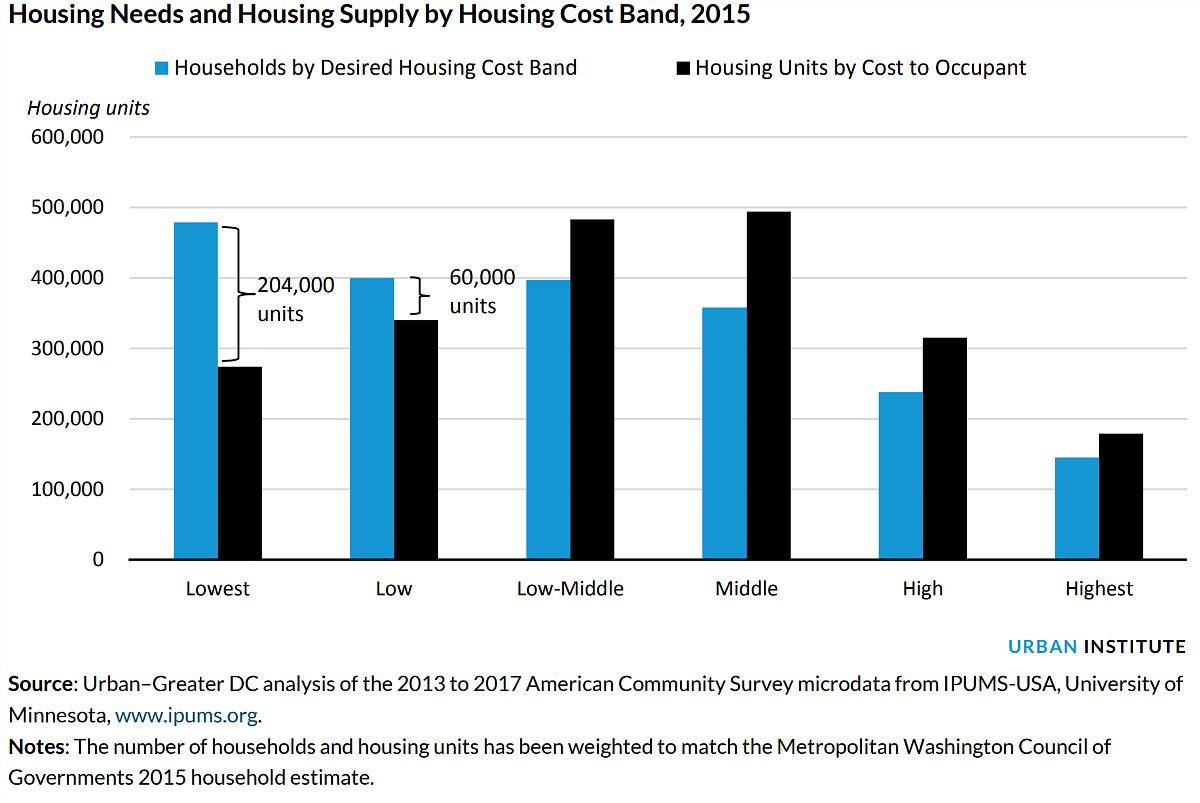
The table above compares the number of households at each income band with the number of housing units which would be affordable to households which can only afford the least expensive housing in that income band. Based on 2015 estimates, there is a deficit of 204,000 housing units for households earning less than $32,600 a year; for households earning between $32,600 and $54,300, there is a deficit of 60,000 housing units.
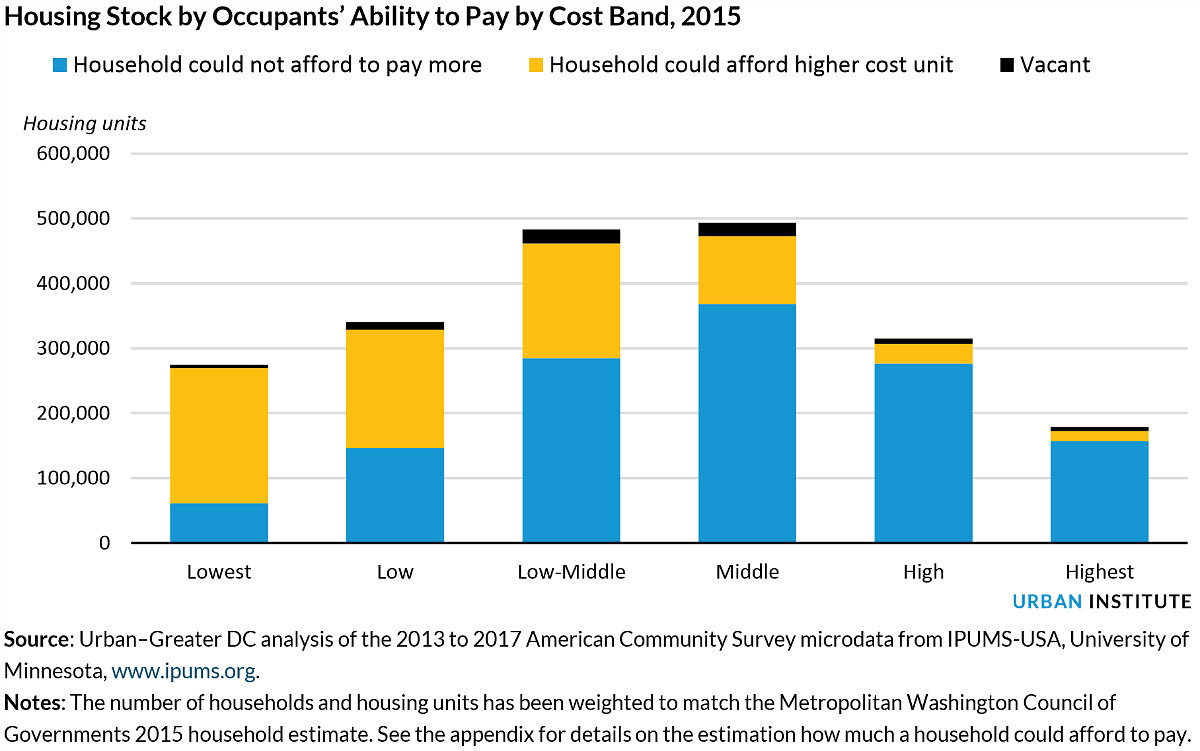
The dearth of supply amid the lower income bands leads to increased competition for the most affordable units in each income band, to the point that 75 percent of households in the lowest income band could afford a pricier unit. Similarly, more than half of households in the low income band, 37 percent of households in the low-middle income band (earning $54,300-$70,150), and 21 percent of households in the middle income band (earning $70,150-$130,320) could afford a pricier unit.
story continues below
loading...story continues above
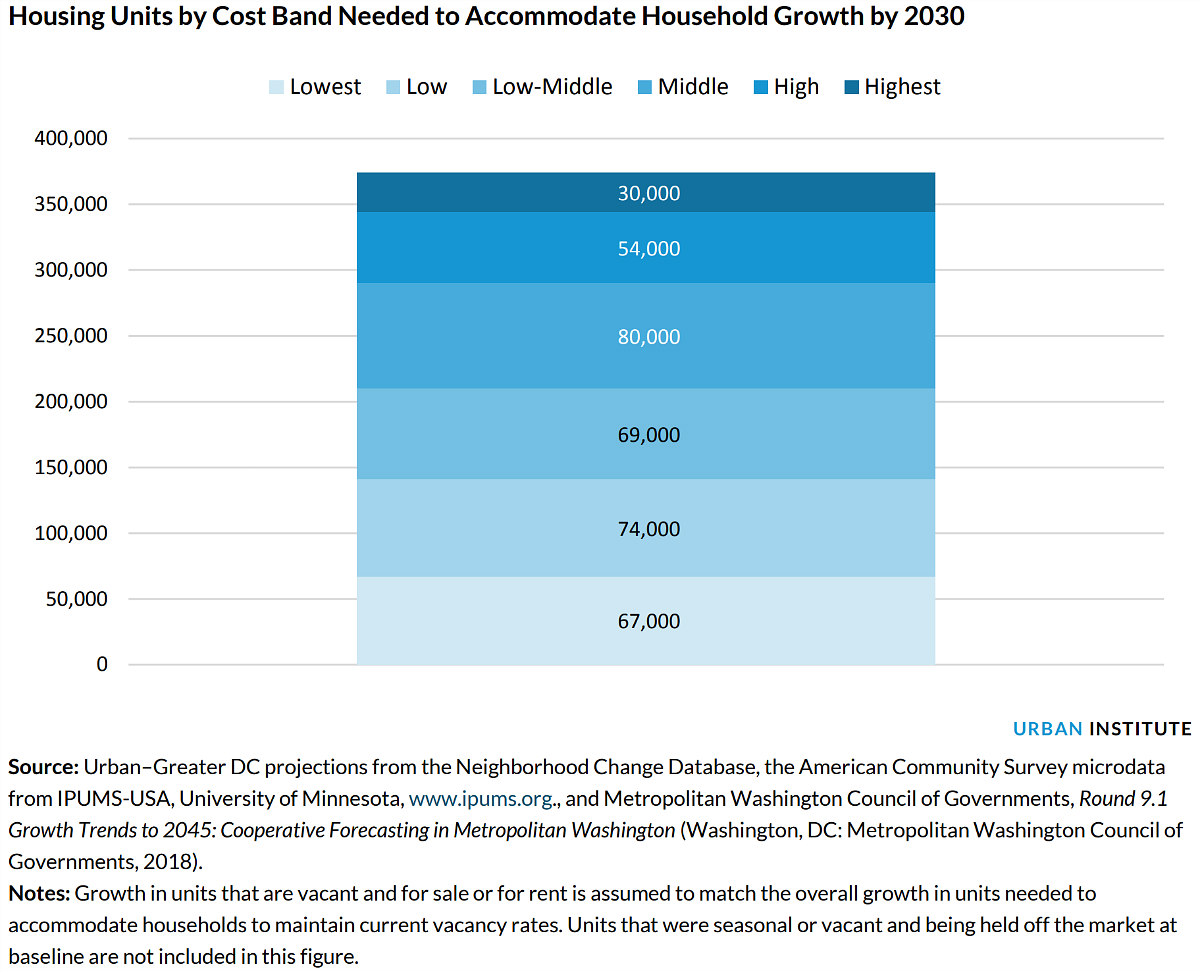
The report also calculates the number of housing units needed in order to create a more balanced and appropriate housing market in the DC area by 2030, by which time the region is expected to grow by 363,000 households. More than one-third of the new households will be lowest- or low-income earning, and more than half of the new units needed (210,000) should be affordable to households in the three lowest income bands. Roughly 141,000 of the units should rent for no more than $1,300 a month (in 2016 dollars).
The impending wave of retiring baby boomers is also expected to bolster the number of lower-income households. Currently, the Urban Institute counts 224,000 affordable rental units which will require intervention to maintain their affordability, whether because affordability covenants are expiring, or because they lack subsidies but are aging to the point that they could lose affordability through renovation or replacement.
The Urban Institute report uses data from the Metropolitan Washington Council of Governments as the baseline for its conclusions, and the region is considered to include DC proper; Prince George's, Montgomery, Charles and Frederick Counties in Maryland; and Arlington, Loudoun, Fairfax and Prince William Counties, plus Alexandria City, in Virginia.
See other articles related to: affordability, affordable housing, affordable housing dc, affordable housing distribution, construction, the urban institute, urban institute
This article originally published at http://dc.urbanturf.production.logicbrush.com/articles/blog/the-dc-area-has-a-deficit-of-over-200000-housing-units-for-lowest-income-ho/15836.
Most Popular... This Week • Last 30 Days • Ever

Today, UrbanTurf is taking a look at the tax benefits associated with buying a home t... read »

On Thursday night, developer EYA outlined its plans at a community meeting for the 26... read »
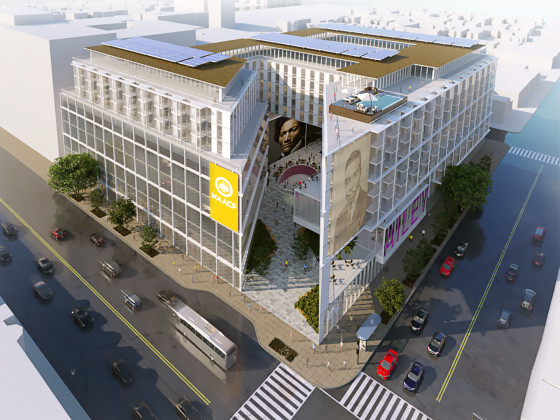
Only a few large developments are still in the works along 14th Street, a corridor th... read »
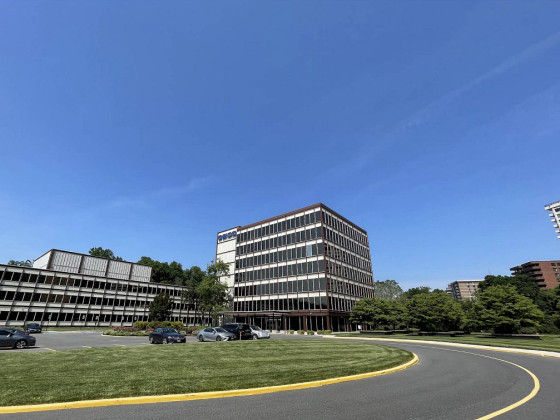
EYA and JM Zell Partners have plans for 184 townhomes and 336 apartments spread acros... read »
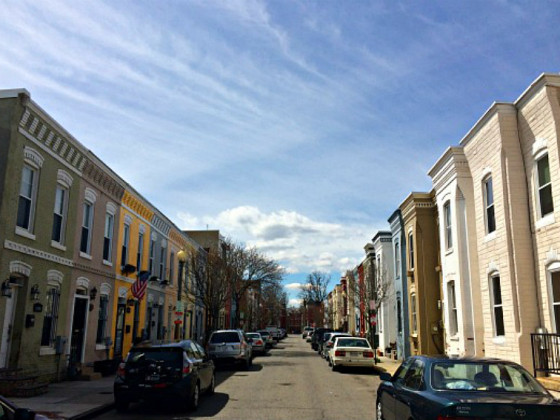
Today, UrbanTurf is taking our annual look at the trajectory of home prices in the DC... read »
- A Look At The Tax Benefits of Buying a Home Through a Trust
- A First Look At Friendship Commons, The Big Plans To Redevelop Former GEICO Headquarters
- Church Street, U Street + Reeves: A Look At The 14th Street Development Pipeline
- 520 Residences Planned For Former GEICO Campus In Friendship Heights
- The 10-Year Trajectory Of DC-Area Home Prices In 4 Charts
DC Real Estate Guides
Short guides to navigating the DC-area real estate market
We've collected all our helpful guides for buying, selling and renting in and around Washington, DC in one place. Start browsing below!
First-Timer Primers
Intro guides for first-time home buyers
Unique Spaces
Awesome and unusual real estate from across the DC Metro














